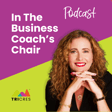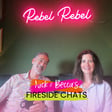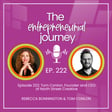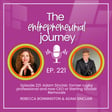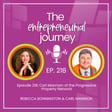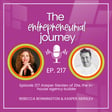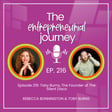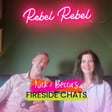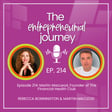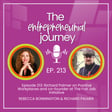
Episode 200: Sabrina Maddock, CEO of recruitment agency Avanti Search and former Miss Australia!
Sabrina Maddock is the founder and CEO of recruitment agency, Avanti Search. Prior to her recruitment career, Sabrina competed on The Apprentice, was Miss World Australia (placing third overall at Miss World 2006), and co-authored a book that landed on Malcolm Turnbull's prime ministerial reading list. She is also a diversity & inclusion consultant and a member of Mensa, and calls Sydney home.
Timestamps:
[1:40] What was the first of your many accolades?
[4:40} The MENSA test
[5:40} All about The Apprentice
[8:45] What happened after The Apprentice?
[12:05] When did you go out on your own in recruitment?
[15:45] What do you specialise in?
[17:50] What’s it like working with your husband?
[26:25] The Circle of Trust!
[30:15} Boyfriend memory
[32:50] A funny story about AI hiring
https://www.avantisearch.com.au/
https://linkedin.com/company/avantisearch
———————————————
Subscribe to Tricres! https://www.youtube.com/channel/UCX0EUHMC2CckN6amdXL2F3Q?sub_confirmation=1
We interview entrepreneurs at the beginning, middle, and end of their businesses so if you’re a coach and consultant get inside the head of business owners and gain their insights and driving forces.
Join our growing family and community of business coaches and consultants! If your passion is about making it happen for SMEs you need to listen to our podcast with business owners from around the world.
Find our other podcasts HERE at:
Want to join us for our next Escape 9 to 5 Live Event to become a business coach and consultant or to enhance your e
